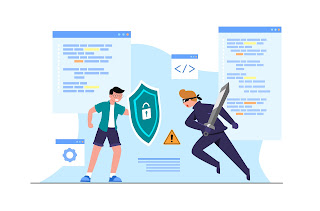Essential Skills for CCNA Training in Noida- GICSEH

Essential Skills for CCNA Certification: Building a Strong Foundation in Networking The Cisco Certified Network Associate (CCNA) certification is highly regarded in the field of networking and is recognized globally as a validation of fundamental networking knowledge and skills. Achieving the CCNA certification requires a comprehensive understanding of networking concepts, protocols, and technologies. In this article, we will explore the essential skills that aspiring CCNA professionals should develop to excel in their certification journey to improve CCNA skills through specialize courses like CCNA Training in Noida . Key Highlights Networking Fundamentals: Understanding the OSI model, TCP/IP protocols, subnetting, and IP addressing is essential. Routing and Switching: Knowledge of dynamic routing protocols, VLANs, and inter-VLAN routing is crucial. Network Security: Familiarity with access control lists, firewalls, VPNs, and secure network design principles is important...

